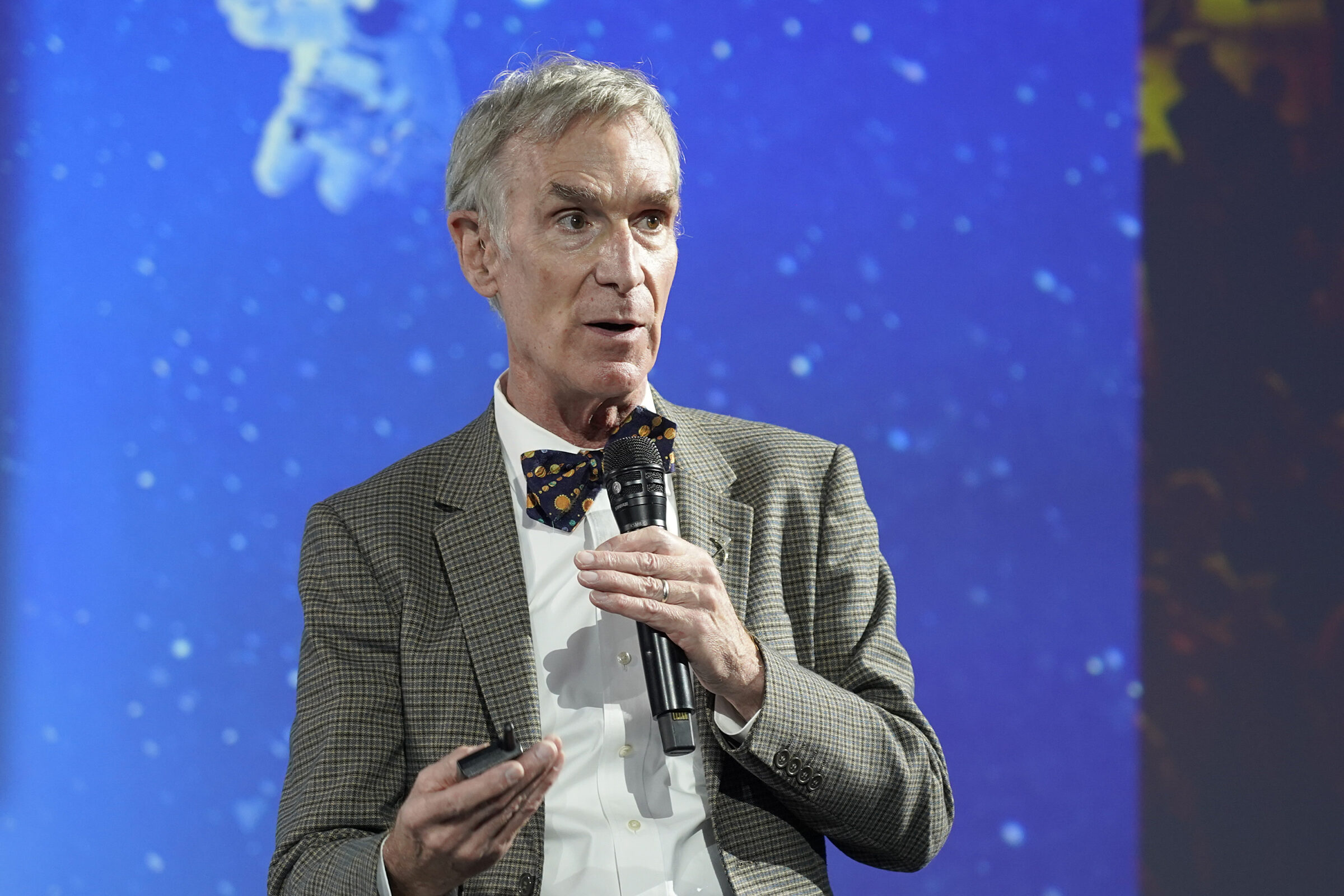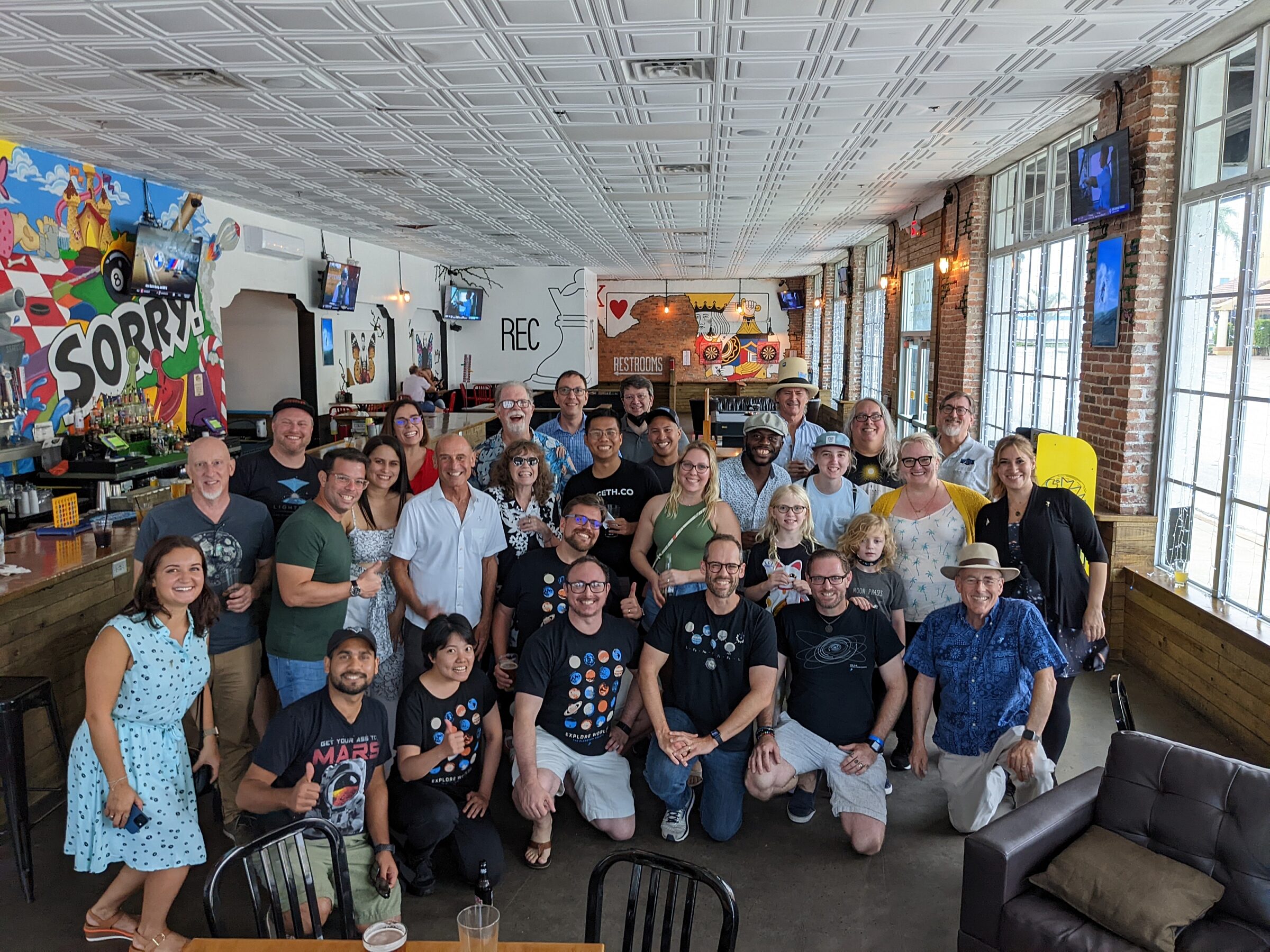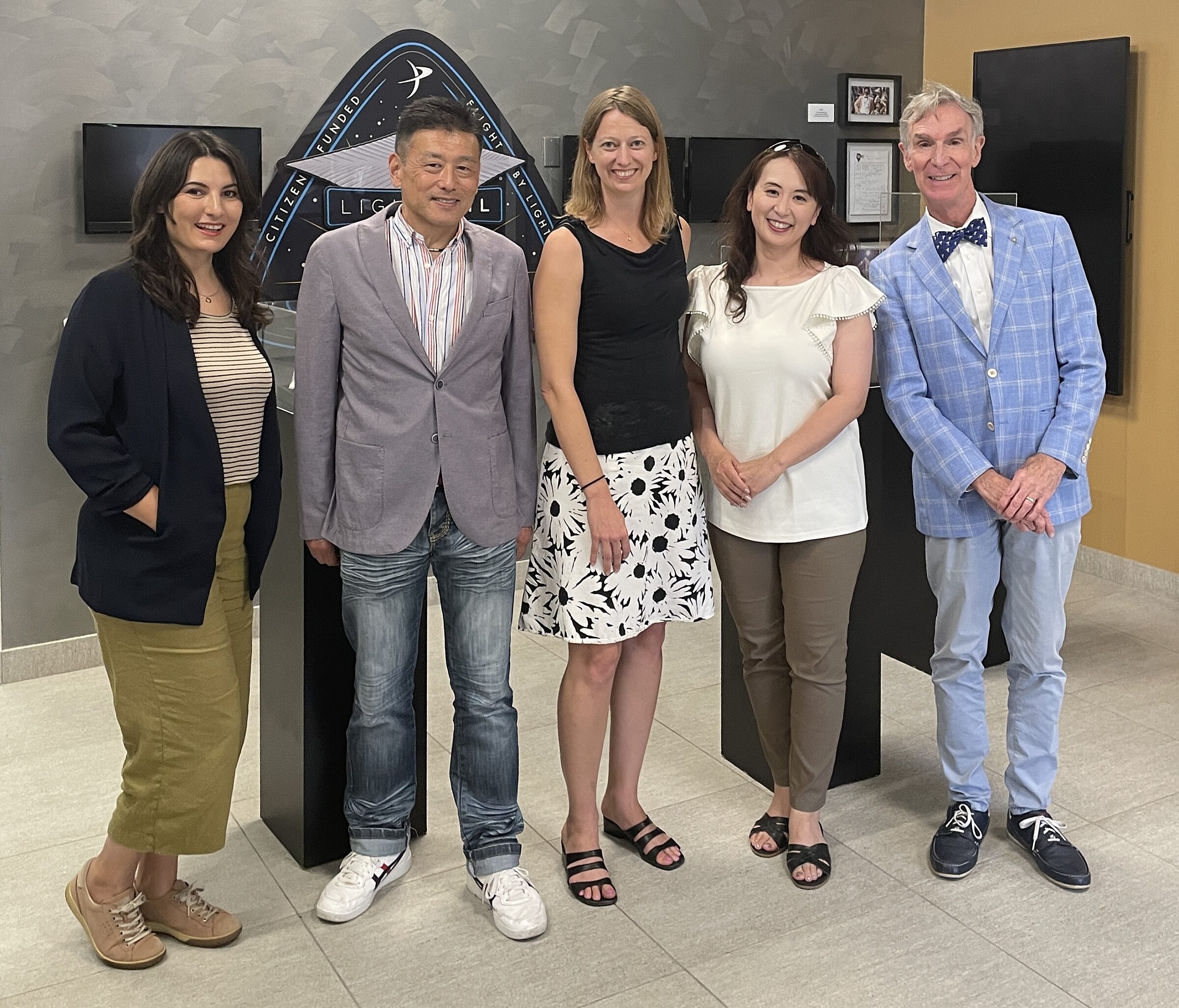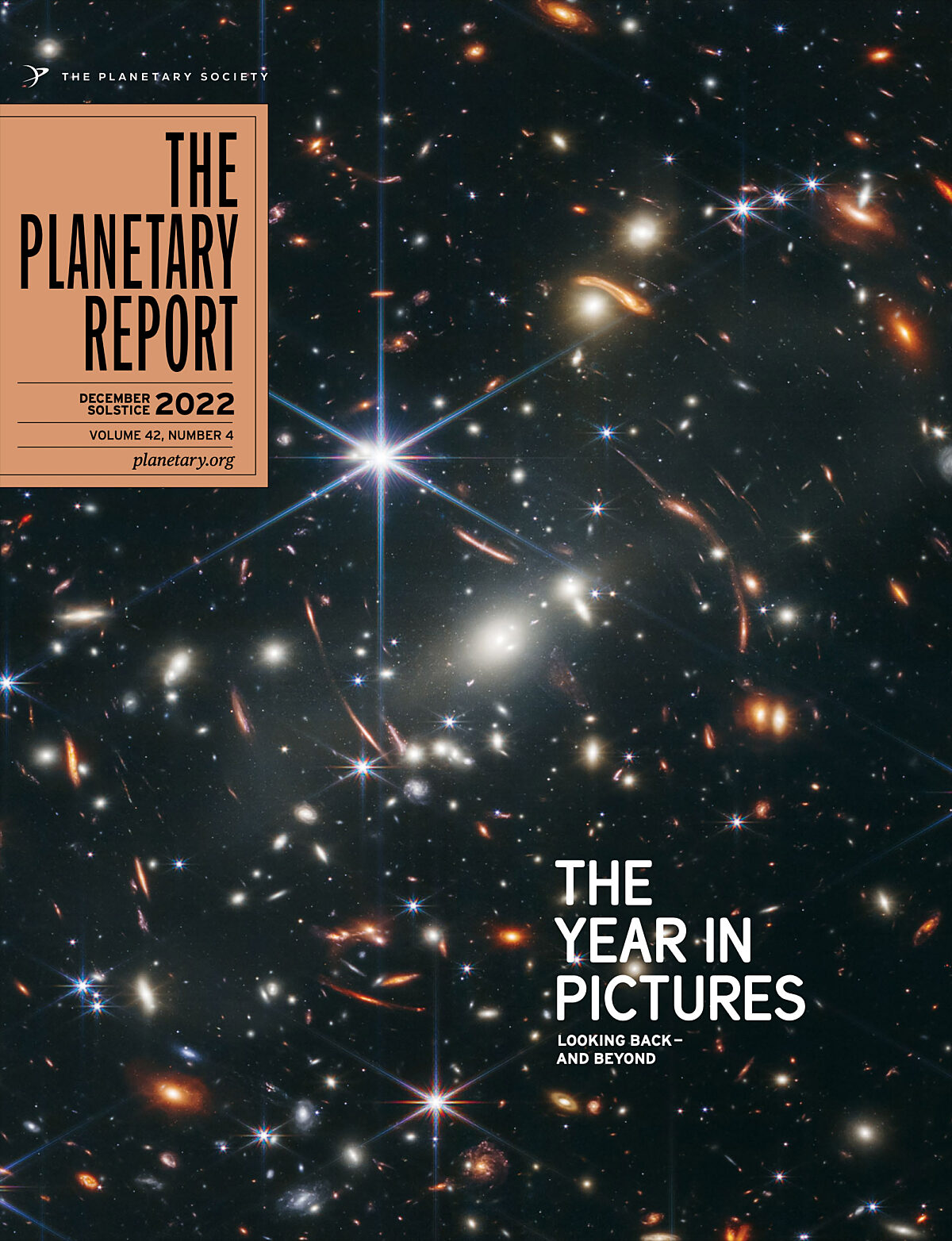Your impact: December solstice 2022
Kickstarting a new adventure
Thanks to the overwhelming support of our members and backers, we were able to raise just over $115,000 on Kickstarter to get our brand-new kids’ membership program, Planetary Academy, off to a stellar start, with more than 800 new members joining the program! Our team has dreamed about launching a member program designed just for kids for many years, and we’ve been hard at work to make it happen this year. Thanks to you, this dream is now a full reality, and Planetary Academy is available to all. Elsewhere in this issue, learn more about this program and our mission to spark a lifelong passion for space exploration in generations to come.

Making an impact for planetary defense in Paris
In September, the world’s leaders in planetary defense came together at the 2022 International Astronautical Congress in Paris, France for a panel called “Defending Earth: The International Effort to Protect Us From Asteroids and Comets.” Moderated by Planetary Society board member Dipak Srinivasan, the panel featured DART Mechanical Lead Engineer Betsy Congdon; NASA Associate Administrator for Technology, Policy, and Strategy Bhavya Lal; HERA mission Principal Investigator Patrick Michel; ESA Head of Planetary Defence Office Richard Moissl; and our own CEO Bill Nye, who shared ideas for how to get the public more fully engaged in planetary defense.
DART impact mission success!
On Sept. 26, NASA successfully slammed the DART spacecraft (Double Asteroid Redirection Test) into Dimorphos, a moonlet of the asteroid Didymos. Planetary Society CEO Bill Nye was there to celebrate at Johns Hopkins Applied Physics Laboratory, helping pump up the crowd at the official watch party with former astronaut and Society friend Leland Melvin. Now comes the work of studying the impact, including ensuring the European Space Agency’s (ESA’s) HERA mission launches in 2024 to study the effect of DART’s impact up close. In 2019, Planetary Society members wrote to ESA to show their support for HERA, which was subsequently funded by ESA’s member countries.

Members came out in support of Artemis
Artemis I may not have launched as expected in August 2022, but that didn’t stop us from celebrating! Planetary Society members who traveled to Kennedy Space Center to see the launch gathered together, making the trip worthwhile despite the rocket not taking off the next day. Every time members are together in person, it’s a wonderful reminder of the sense of community we’ve built around our shared passion for space science and exploration. We look forward to more in-person events in the months and years ahead.
Celebrating space around the planet
Space exploration is an international endeavor, and the things that we discover about the Cosmos and our place in it are meant to be enjoyed and appreciated by the whole world. That’s why The Planetary Society partners with global organizations and events that share space with people all around our planet. In October 2022, we invited our members and supporters to join us in celebrating World Space Week, for which this year’s theme was “Space and Sustainability.” We joined with thousands of participants in over 90 countries for a series of virtual and in-person events highlighting the role that space plays in sustainable development on Earth and how space exploration itself can be done in sustainable ways. That same month, we joined NASA in promoting International Observe the Moon Night. This event invites people around the world to look up at the Moon, learn about our planet’s natural satellite, and share the adventure of lunar science and exploration with others.
Maintaining leadership in space policy
In response to Planetary Society advocacy, both houses of Congress have proposed NASA budgets that restore tens of millions of dollars to this mission, which was to suffer a 75% cut. At the time of publication, the Senate had proposed to restore $40 million to the program and the House, $55 million. Additional legislation passed into law directs NASA to avoid cutting NEO Surveyor in the future, even when facing overruns in other planetary science missions.

The Planetary Society and JAXA team up
In August, Planetary Society leadership welcomed education outreach leaders from Japan Aerospace Exploration Agency (JAXA) to Society headquarters in Pasadena, California to explore ideas for collaboration on education and public outreach initiatives.
DEIA at The Planetary Society
Over the last two-and-a-half years, The Planetary Society has been working to integrate diversity, equity, inclusion, and accessibility (DEIA) best practices into all of our work. Thanks to the support of members like you, we have been able to make some major, long-term changes to improve how we engage with our staff, members, volunteers, board of directors, and audiences.
DEIA has been woven into our day-to-day operations thanks to the creation of a working group within our staff and a committee on our board. We have conducted training sessions for all of our staff as well as our board to learn more about DEIA and to dig into how we can improve what we do here at the Society. We brought on a consultant, Chino Nnadi-Bridger of Consult x Chino, to work more closely with our staff to examine hiring practices, train supervisors on identifying and eliminating bias, and implement other DEIA best practices.
We also participated in the Zed Factor Fellowship program for the second time this year. This program empowers aspiring aerospace professionals from underrepresented backgrounds to explore the aerospace industry through internship placements. This year, we worked with Zed Factor Fellow Melody Miguel, an undergraduate student from the University of Central Florida.
Our DEIA goals for the coming years start with internal work: committing time and funding for consultants, trainings, workshops, and other learning opportunities; improving our hiring, onboarding, and HR policies; ensuring our staff has a safe and empowering work environment; and continuing to learn and grow together as an organization. From this work, we already see a change in how we communicate with and engage our communities, from members to volunteers to audiences. Our ultimate goal is to be a force for change in the space community as a whole, bringing greater diversity, equity, inclusion, and accessibility to the worldwide effort to explore space. Thank you for your ongoing support as we do this important work.
Support our core enterprises
Your support powers our mission to explore worlds, find life, and defend Earth. You make all the difference when you make a gift. Give today!
DonateThe Planetary Report • December Solstice
Help advance space science and exploration! Become a member of The Planetary Society and you'll receive the full PDF and print versions of The Planetary Report.


 Explore Worlds
Explore Worlds Find Life
Find Life Defend Earth
Defend Earth


